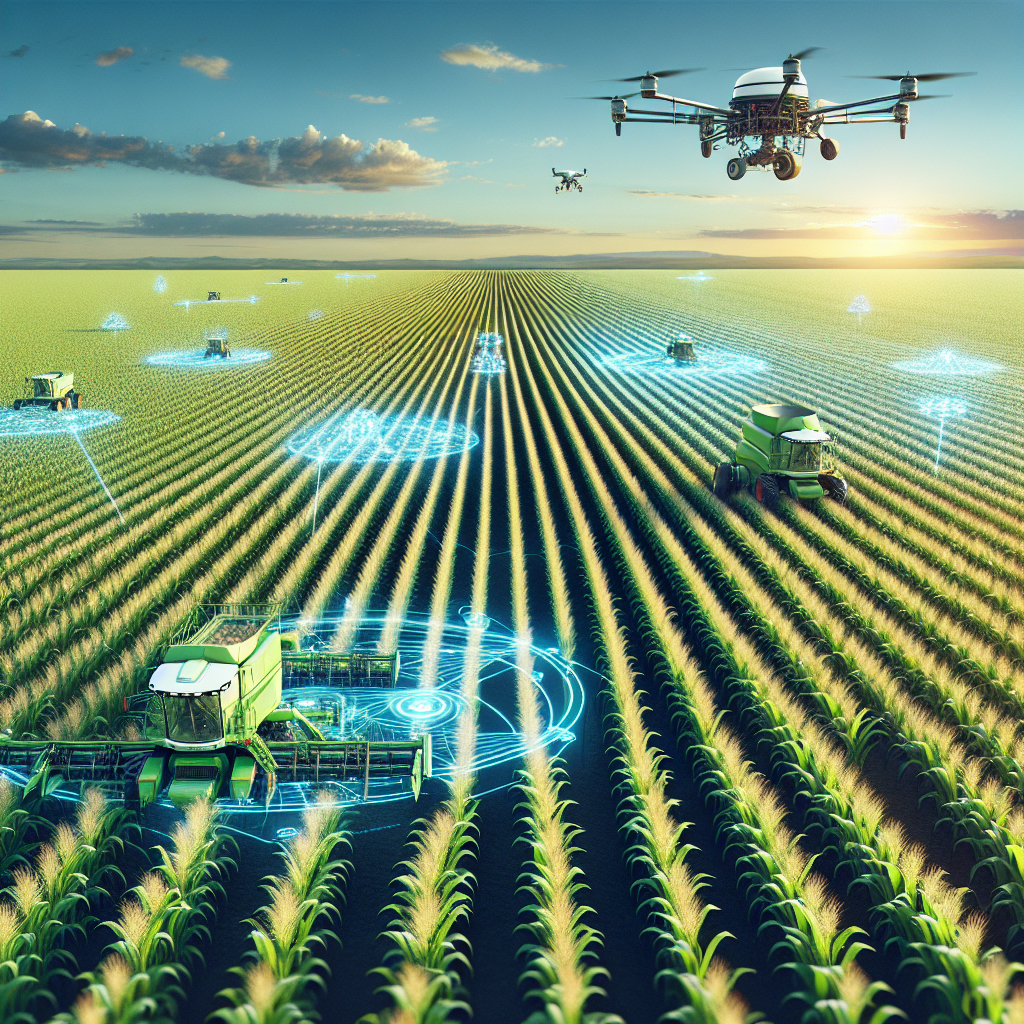Artificial Intelligence (AI) is revolutionizing various industries across the globe, and agriculture is no exception. The role of AI in agriculture is becoming increasingly significant as farmers and researchers alike are harnessing the power of AI to improve crop yield, sustainability, and overall efficiency in the farming process. In this article, we will explore how AI is transforming the agricultural sector and the benefits it brings to farmers and the environment.
AI in Agriculture: How Does it Work?
AI in agriculture involves using advanced technologies such as machine learning, computer vision, and data analytics to optimize farming practices and decision-making processes. By analyzing large amounts of data, AI algorithms can provide valuable insights to farmers, helping them make informed decisions on crop management, irrigation, pest control, and more.
One of the key applications of AI in agriculture is predictive analytics. By analyzing historical data on weather patterns, soil conditions, and crop growth, AI algorithms can predict future outcomes and provide recommendations on how to improve crop yield. For example, AI can help farmers determine the optimal time to plant crops, the right amount of fertilizer to use, and when to harvest for maximum yield.
Another important application of AI in agriculture is precision farming. By utilizing sensors, drones, and other IoT devices, farmers can collect real-time data on soil moisture, temperature, and crop health. AI algorithms can then analyze this data and provide actionable insights to farmers, enabling them to make precise adjustments to their farming practices. This not only improves crop yield but also reduces the use of resources such as water, fertilizers, and pesticides, making farming more sustainable and environmentally friendly.
Benefits of AI in Agriculture
The integration of AI in agriculture offers numerous benefits to farmers, the environment, and society as a whole. Some of the key benefits include:
1. Increased crop yield: By leveraging AI technologies, farmers can optimize their farming practices and maximize crop yield. AI algorithms can analyze data on weather conditions, soil health, and crop growth to provide recommendations on how to improve productivity and profitability.
2. Sustainable farming practices: AI helps farmers adopt sustainable farming practices by reducing the use of resources such as water, fertilizers, and pesticides. By optimizing irrigation schedules, fertilization rates, and pest control measures, AI can help farmers minimize waste and environmental impact.
3. Improved decision-making: AI empowers farmers to make informed decisions based on real-time data and predictive analytics. By providing valuable insights on crop management, disease detection, and pest control, AI algorithms enable farmers to take proactive measures to protect their crops and improve overall farm productivity.
4. Cost savings: AI can help farmers reduce costs by optimizing resource allocation, minimizing waste, and increasing efficiency in farming operations. By automating tasks such as irrigation, fertilization, and pest control, AI can streamline the farming process and save farmers time and money.
5. Enhanced food security: With the world’s population expected to reach 9 billion by 2050, ensuring food security is a top priority. AI in agriculture can help increase crop yield, improve crop quality, and reduce food waste, ultimately contributing to global food security.
Frequently Asked Questions about AI in Agriculture
Q: How can AI help farmers improve crop yield?
A: AI can help farmers improve crop yield by analyzing data on weather conditions, soil health, and crop growth to provide recommendations on optimal planting times, fertilization rates, and pest control measures.
Q: Is AI in agriculture only for large-scale farms?
A: No, AI technologies can be adopted by farms of all sizes, from small family-owned farms to large commercial operations. AI can be customized to meet the specific needs and budget of individual farmers.
Q: How does AI contribute to sustainable farming practices?
A: AI contributes to sustainable farming practices by optimizing resource allocation, reducing waste, and minimizing environmental impact. By analyzing data on soil health, water usage, and pest control, AI helps farmers make informed decisions that promote sustainability.
Q: What are some of the challenges of implementing AI in agriculture?
A: Some of the challenges of implementing AI in agriculture include the high cost of technology, lack of technical expertise among farmers, and concerns about data privacy and security. However, with proper training and support, farmers can overcome these challenges and reap the benefits of AI in agriculture.
Q: What is the future of AI in agriculture?
A: The future of AI in agriculture looks promising, with continued advancements in technology and increased adoption by farmers. As AI algorithms become more sophisticated and data collection methods improve, the potential for AI to transform the agricultural sector and address global food security challenges will only continue to grow.
In conclusion, AI is playing an increasingly important role in agriculture, helping farmers improve crop yield, sustainability, and overall efficiency in farming practices. By leveraging the power of AI technologies such as machine learning and predictive analytics, farmers can make informed decisions that optimize resource allocation, reduce waste, and increase productivity. As the agricultural sector continues to evolve, AI will undoubtedly be a key driver of innovation and progress, shaping the future of farming for generations to come.

